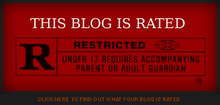
Last week, Senator Joseph Biden (D-DE) launched his presidential campaign and got off to a bumbling start. Seems he referred to Senator Barack Obama (D-IL), a fellow contender for the Democratic nomination, as an “articulate and bright and clean and a nice looking guy.” This, of course, means Biden won’t be the Democratic nominee for president in 2008. I’m not a Biden fan, so I’m not trying to defend him here. Mr. Obama, to whom Mr. Biden later apologized, mostly shrugged it off—at least the articulate part. And so should the media—again, at least the articulate part. (Without question, saying a black man is “clean” is a very, very poor choice of words. For that, I say the media should be all over Biden like flies on doo-doo.)
Okay, I know, I know. Telling an African-American they’re articulate is considered a put down by many within their community. Sort of a backhanded compliment. And yet, isn’t it time to stop parsing compliments like this and instead graciously accept them for what they might be: a genuine note of praise? And even if they aren’t genuine, sometimes the best way to shut up a bigoted, racist, sexist, misogynist prat (or, as CreoleInDC would say, “stoopit” people) is to simply say, “Thank you.” It’s disarming and, for the person who’s been the bigoted fool, it’s the ultimate put down. You’re calling their bluff. You’re defying them to say otherwise that you’re really not articulate or smart or pretty or whatever.
I am told quite often that I’m articulate. Should I raise my feminist hackles and think of it as a backhanded compliment meant to subtly send a message that keeps me in my place—in this case, barefoot and pregnant in the kitchen? Or, should I simply take it as a compliment regarding my ability to express myself well both in written and spoken word? When I’m complimented that way, is the conveyor of the compliment saying, “Gee, she doesn’t sound female at all?” implying that the litmus test for being articulate is the bastion of males only?
I hope you’ll pardon me for saying this, but given the degradation and misuse of language by many people, regardless of race, color, creed, or nationality, it’s incredibly refreshing to meet someone who is articulate and able to express themselves well, both in writing and verbally. That’s not to say there isn’t room for dialects and unique turns-of-phrase. There can be an articulateness and eloquence—if not outright poetry—to dialectical language and prose that should be celebrated. Zora Neale Hurston’s book wouldn’t be what it is without its rich, Shakespearian-like language (Shakespearian here meaning, easier to comprehend and better read out loud than read silently, which is really the only way to read Shakespeare. Or Hurston.) But dialects (or Ebonics or gangsta rap or whatever variation you want to call it) isn’t the problem.
What is bothersome are the people—especially young people—who abuse language in ways that make them look stupid and uneducated and, dare I say it, inarticulate. And don’t even get me started on the potty mouths out there. An occasional swear word is fine. A string of invective laced between “likes” and “you knows” is empty, meaningless, and unattractive. Using epithets that are degrading and demeaning to others—whether it’s the N-word or fag or fatty or whore or whatever—is unnecessary and distasteful, not to mention outright racist, homophobic, sexist, and Neanderthal. The use of such words only serves to make the user look facile and foolish. Frankly, I’d rather see someone smoke a cigarette than hear some of the verbiage that comes out of some peoples’ mouths these days.
Mr. Obama is an articulate, eloquent man who might one day be president. I hope we can see past the surface of adjectives and appreciate their depth and the fact that when some of us—perhaps even Mr. Biden (though I doubt it)—pay a compliment, we genuinely mean it as exactly what we’ve said.
Bottom line is, the ability to speak well is a sign of pride and a desire to constantly do better, regardless of one’s station in life. Being articulate shouldn’t be a put down and it ought not to be seen as a "sell out" to the white man. The next time someone pays you a seemingly backhanded compliment, call their bluff, be gracious and say, “Thank you. I appreciate that.” Believe me, you’ll have the last laugh! At the very least, if it is a genuine compliment, you’ll have been appreciative and that always looks good.
My ramblings aside, here are two pieces worth reading—one from Eugene Robinson of the Washington Post and one from Stuart Taylor Jr. of the National Journal.
An Inarticulate Kickoff The Great Black-White HopeWhich one do you agree with?
 As we celebrate our nation's independence from tyranny 231 years ago, let us not forget that others suffer.
As we celebrate our nation's independence from tyranny 231 years ago, let us not forget that others suffer.





